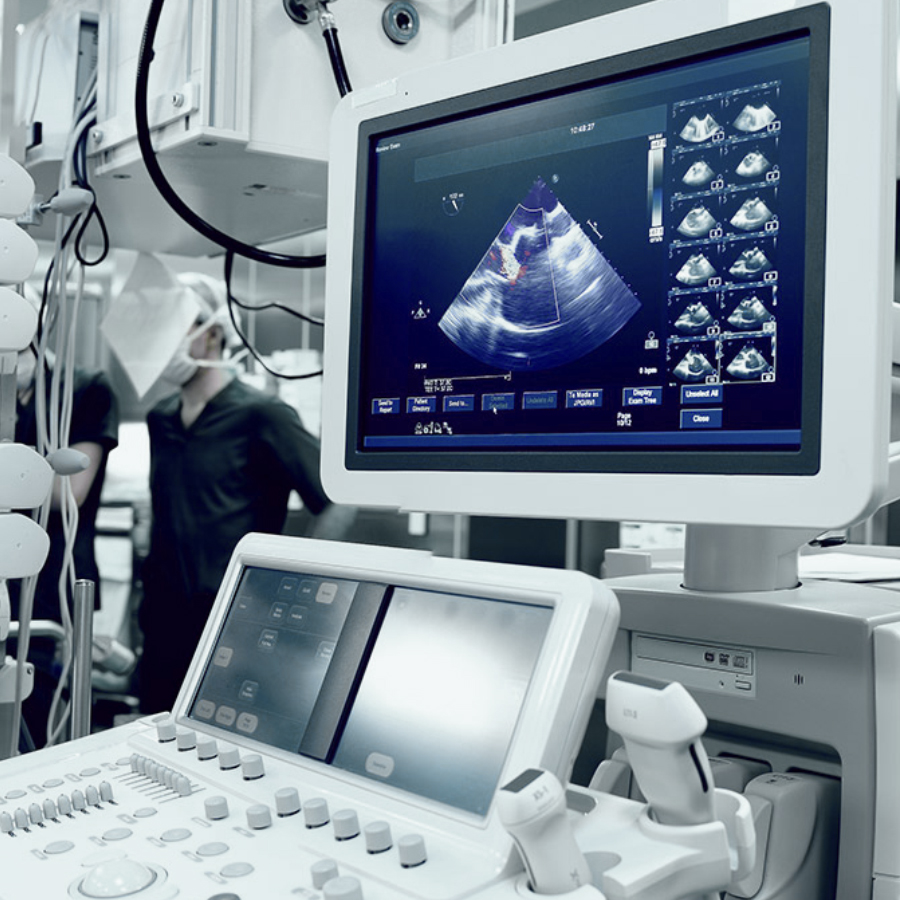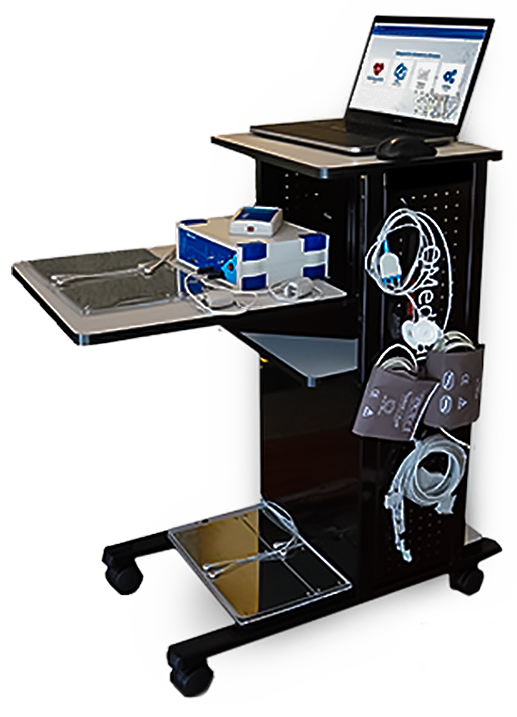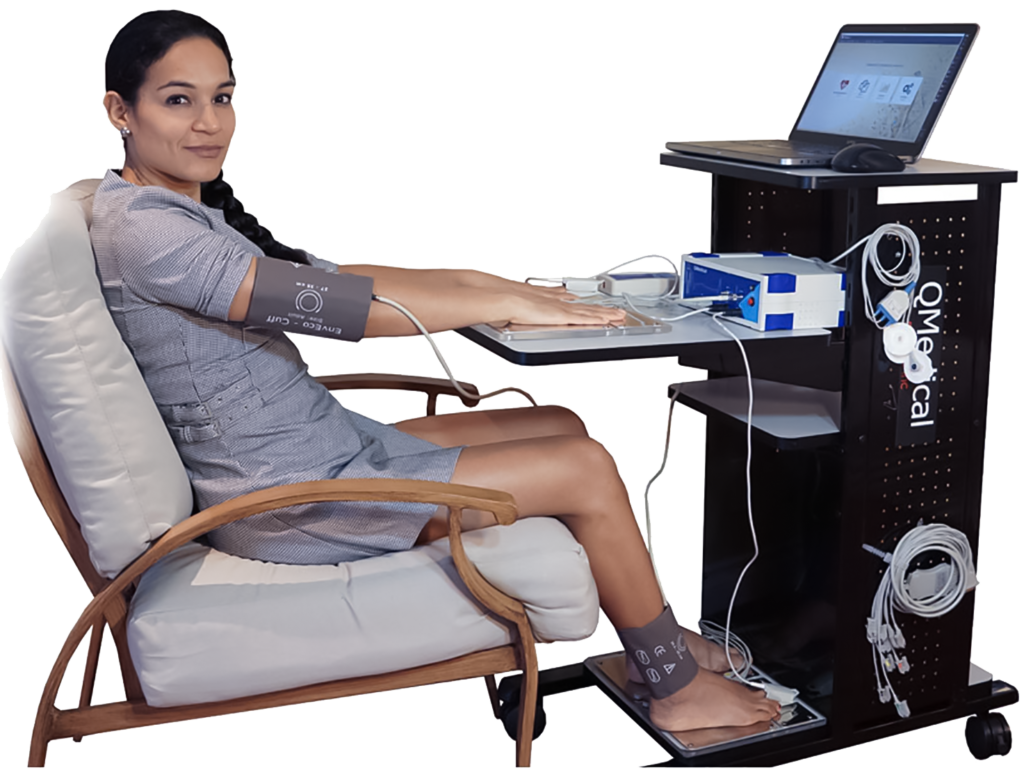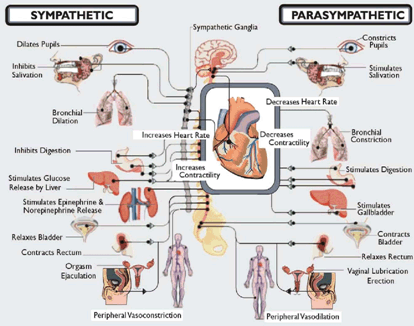ProMed, LLC
About The Company

Medical solutions
Providing Innovating Medical Solutions
ProMED helps physicians increase practice revenue and provide enhanced patient care by providing industry-leading medical equipment and diagnostic solutions. We offer customized testing platforms that enable physicians to diagnose a range of health conditions related to autonomic nervous system disorders and peripheral neuropathies. Our team of highly skilled support staff include medical doctors, medical assistants, and revenue cycle experts – all ready to provide your practice with technical training, operational support, and billing best practices.


Innovation
valued by practitioners and researchers in a variety of health care and professions throughout the world.
We provide a full spectrum of Heart Rate Variability instruments, complimenting both the research and educational spheres, because our expert software and hardware development is focused on the design and implementation of highly innovative, industry leading products designed to meet the needs of researchers, consumers, educational, corporate, fitness and professional services. The company’s current products have proven marketability and are valued by practitioners and researchers in a variety of health care and professions throughout the world.
Solutions
ANS Assessment
(Autonomic Nervous System Testing)
More than 100 million U.S. adults are now living with diabetes or prediabetes, according to the Centers for Disease Control and Prevention (CDC). As of 2015, 30.3 million Americans – 9.4 percent of the U.S. population – have diabetes. Another 84.1 million have prediabetes, a condition that if not treated often leads to type 2 diabetes within five years.
Early detection of cardiovascular and peripheral neuropathies is key to managing diabetic patient populations. We are proud to offer leading-edge Autonomic Nervous System testing solutions that enable physicians to detect and manage ANS conditions. Our equipment measures galvanic skin response and Heart Rate Variability through a simple, quick, and non-invasive test that gives providers the ability to detect neuropathy before it becomes symptomatic.
Peripheral and cardiovascular neuropathy are among the largest concerns for diabetic patients, and it has been repeatedly proven that the earlier this condition can be detected and treated, the more likely a patient is to live a long and healthy life. Current estimates put the likelihood that a diabetic patient showing physical symptoms of peripheral neuropathy will survive through the next five years at between only 25 and 50 percent. By catching this condition through regular testing, health care providers can make a positive difference.
Autonomic Nervous System testing requires only minutes to set up and operate – the benefits for your patients last a lifetime. Also, with insurance billing codes that work with major private insurance, including Medicare, you can be sure that this is one solution that truly benefits your practice as well

Solutions
ProMed ANS BioScan System®
ProMED ANS Device is a non-invasive, fully automated computer-based system that provides Heart Rate Variability (HRV), blood pressure analysis and Pulsewave Velocity analysis for quantitative assessment of the Autonomic Nervous System (ANS).
Over stress and immobilization are conventional health risk factors, triggering the development of life threatening specific diseases. ProMED ANS Device offers the possibility of Cumulative Physical and Mental Stress Assessment.
ProMED ANS Device Pulse Wave Velocity (PWV) analysis is based on physiological phenomenon, observable and measurable in the arterial elasticity and stiffness during blood circulation.
ProMED ANS Device is the result of more than three decades of very profound scientific research. Testing can be performed easily in almost all medical branches. ProMED ANS Device offers the possibility to manage the effect of any health promoting strategy.


Solutions
BioScan SudoCheck System
In 3-5 Minutes Identify Patients At Risk:
Small nerve fibers are the very first victims of diabetes, which is known to affect the peripheral nervous system even symptoms remain sub-clinical. According to a recent study, already at an early stage of the diabetes evolution, the sympathetic innervation of eccrine sweat glands is progressively reduced. Irrespective of temperature and physical exercise, this alteration of the sweat glands’ autonomous control causes a longlasting shift in the ionic balance of sweat conducts.

